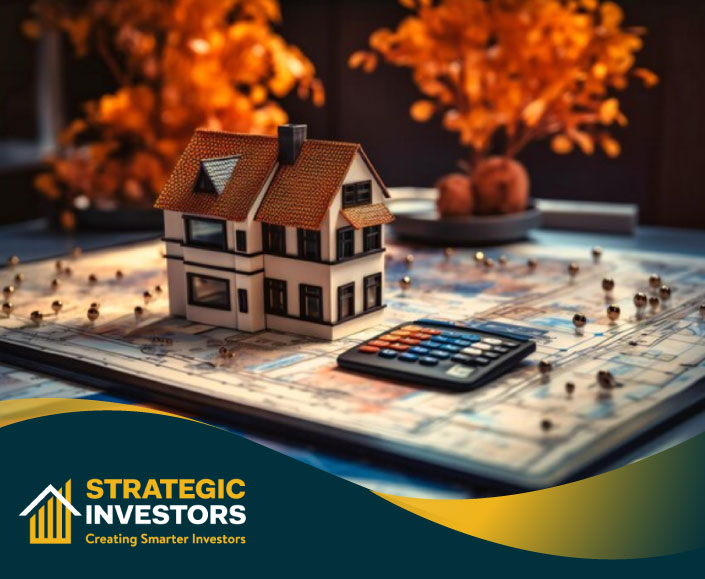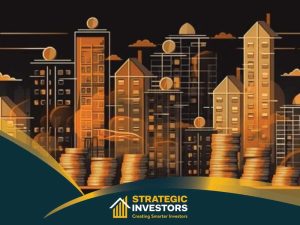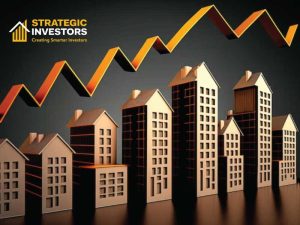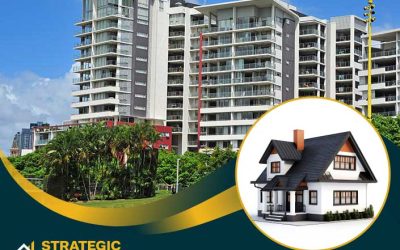
What property should you buy?
There are three main financial reasons to invest in property.
- Property Growth
- Income Generation
- Taxation Minimisation
Reason 1: Property Growth
The first is growth in the value of a property. The rise in price is known as capital growth. And the difference between what you paid for a property and what it is now worth is your capital gain. Of course, any particular property’s capital growth depends on its type, where it is, and especially the demand for your type of property. That’s something you have to consider when planning your investment strategy.
Reason 2 Income Generation
The second primary reason to invest in property is to generate a regular income by renting out to others. In other words, those who can’t or don’t want to buy property still need somewhere to live and will pay you to live in your property each month. Again, how much rent you can expect will be determined by the property’s type, location, and quality, and, of course, the demand for it.
These factors will dictate how much someone is willing to rent and how long the property stays rented. Properties in good condition and the right location are almost guaranteed continuous rental payments. This reduces the risk of potential rental loss when a property is vacant. Of course, your rent isn’t all profit. The cost of owning your property has to be offset against the rental income. The cost of ownership can be considerable. It can exceed the rental income you get from the property each month.
Of course, losing money each month isn’t an ideal situation. But it may not matter too much if it’s a good part of your overall property investment strategy, mainly if you’re using the tax advantages that come from property investment.
Reason 3 Taxation Minimisation
Using the tax benefits that come your way as a landlord or property investor is the third way you can earn money from building a property portfolio. No one likes paying more tax than we have to. But fortunately, because the government wants to encourage the property market, they offer property investors opportunities to reduce their tax bills. As a property investor, you can offset your expenses against the income earned from the property. A property investor can also take advantage of depreciation. By using a knowledgeable accountant, you’ll make considerable savings.
The Key Elements of Property Investment
Becoming a successful property investor is all about juggling these three elements to optimise the return you get from your property portfolio in a way that suits you best. So, what property should you buy?
Property Investment Strategies
 There are two basic property investment strategies you can pursue. The first is to look for, and purchase properties you think will rise fastest in value than what you’ve paid for them—delivering the best possible capital growth in a timeframe acceptable to you. When these properties have grown in value, you have two choices;
There are two basic property investment strategies you can pursue. The first is to look for, and purchase properties you think will rise fastest in value than what you’ve paid for them—delivering the best possible capital growth in a timeframe acceptable to you. When these properties have grown in value, you have two choices;
1. Sell and use the profit
2. Grow your property investment portfolio
Sell them off and take your capital gain. Don’t forget the taxman will tax your capital gain heavily.
Using the increased value of the property, use it to finance other properties. Pretty much any property that is held for a reasonable period will yield strong capital growth, even those that have been bought with cash flow in mind. Over the last 100 plus years, property prices have tended to double in price every 10 years
Finding Positive Cash Flow Properties
 The market dictates how much people are willing to pay in rent. It is a demand and supply. As a property investor, this heavily weighs on your mind when selecting a property. No one would want a long term negative cash flow property if you had to borrow too much money for the property investment. It would not be a sustainable position for any investor if only cash flow were considered. The capital growth needs to be considered as an offset. Though this may impact your personal living standard.
The market dictates how much people are willing to pay in rent. It is a demand and supply. As a property investor, this heavily weighs on your mind when selecting a property. No one would want a long term negative cash flow property if you had to borrow too much money for the property investment. It would not be a sustainable position for any investor if only cash flow were considered. The capital growth needs to be considered as an offset. Though this may impact your personal living standard.
If you were an investor that did not want a long term negative cash flow but income steam, you would need to go for a slightly different strategy. Investors need to find properties whose ‘ownership’ costs are lower than property rental.
Finding a positive cash flow property is difficult though not impossible. A significant factor is how big your deposit and interest rates are and the monthly loan repayment costs. Our experience has revealed it takes several years for rents to exceed the monthly costs of mortgage repayments, insurance, and body corporate fees.
It doesn’t mean that properties capable of generating a positive cash flow right from the start are impossible to find. It’s just that you’ll have to look harder to find them. It is likely to be in low growth areas such as regional towns or the edges of cities, where a lower purchase price means lower finance costs.
Is it possible to have both high capital growth and positive cash flow properties?
 It is very difficult, near impossible, to find properties that will deliver strong capital growth and a good positive cash flow with a typical property investment deposit.
It is very difficult, near impossible, to find properties that will deliver strong capital growth and a good positive cash flow with a typical property investment deposit.
Every investor is faced with deciding what type of property is best suited to achieving their personal goals.
What type of Investment Property to choose?
As an investor, there are several different property options that you could invest in, including commercial property or even plots of land.
Most investors choose to concentrate on residential property, houses, townhouses, apartments and units. Houses, of course, are the most common residential property type. However, they come in many different styles and specifications, ranging from the small, old fashioned rural cottage right through to the stately mansions of millionaires.
Find out your borrow capacity
What is the most sought-after property investment type?
 The most sought after property is a three or four-bedroom home with a large backyard where kids can play and be safe. Houses like these in popular suburbs can make significant investments, mainly as tenants who choose them will often stay much longer than those in other types of rental accommodation.
The most sought after property is a three or four-bedroom home with a large backyard where kids can play and be safe. Houses like these in popular suburbs can make significant investments, mainly as tenants who choose them will often stay much longer than those in other types of rental accommodation.
Two storey townhouses, similarly to houses, have their own plot of land. As well they are relatively modern that include either a lockup garage or carport. The footprint of townhouses is usually in higher density in the city areas. It makes them very popular with younger couples who like the feeling of living in a house with the benefit of having off road parking, but being close to the entertainment and convenience of the town centre.
Unlike houses and townhouses, apartments or units aren’t freestanding but are part of a larger complex. Apartments, which are usually part of a modern high rise building, are generally considered more upmarket than units with better facilities such as swimming pools, gyms, and barbecue areas shared with residents in the complex.
Understandably, apartments are considered trendy places to live, favoured by well-off young professionals who can afford to live there and enjoy the urban lifestyle.
Units are usually smaller and older, making them cheaper for young people to start on the property investment journey.
Final Say
No one property investment strategy fits everyone. Many factors need to be considered when planning to undertake property investment, from lifestyle to age to the economy and many other factors. Careful planning can help you achieve outstanding property investment success.
Strategic Investors can help you help plan your path.













